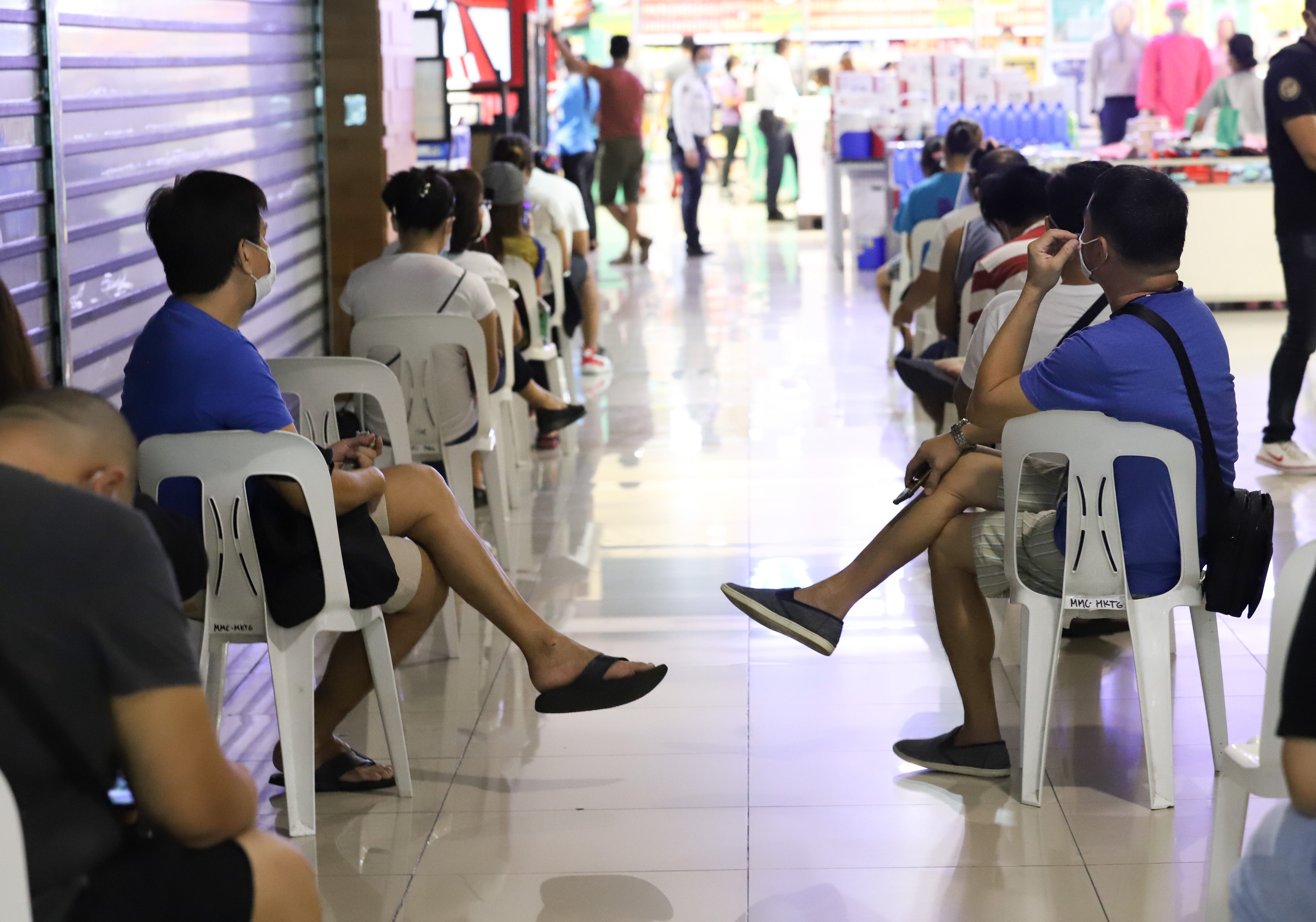Headline
Majority of Pinoys optimistic PH can overcome Covid-19 pandemic

FILE: SOCIAL DISTANCING. Shoppers practice social distancing while waiting for their turn to enter the supermarket at Fisher Mall in Quezon City on Wednesday (April 22, 2020). Social distancing is one of the measures of the enhanced community quarantine to reduce risk of spreading Covid-19. (PNA photo by Robert Oswald P. Alfiler)
MANILA – Majority of Filipinos are optimistic that the country can overcome the coronavirus disease (Covid-19) pandemic, a quantitative study prepared by the Philippine Survey Research Center (PSRC) showed.
In a virtual presser on Monday, Presidential Spokesperson Harry Roque said that based on the study fielded from April 7 to 12, around 88 percent of Filipinos are optimistic that the country can overcome the pandemic.
Only around 3 percent were pessimistic while 9 percent “can’t say” whether they are optimistic or pessimistic that the country can beat the health crisis, he said.
The study also showed that around 35 percent of Filipinos believed that the health crisis would last for one month while 46 percent believed it would last for two to three months.
Around 12 percent of Filipinos think it will last for four to six months and 7 percent think the pandemic will be solved in over six months.
The study also showed that the “difficulties” encountered by Filipinos during the quarantine are mainly micro-economics related.
The top difficulty of Filipinos during the quarantine is “lack of money for daily needs” at about 67 percent followed by “loss of my job/livelihood” (57 percent); and “high prices of goods” (52 percent).
Filipinos’ fourth worry during quarantine is “depletion of savings” (52 percent), followed by “not enough food at home” (50 percent), and “shortage of goods in the markets” (49 percent).
Other difficulties are lack of public transportation, lack of help/response from the government, lack of vitamins and medicines, lack of space for proper social distancing, corruption by the government, inability to go to hospitals or health facilities for treatments, lack of water for sanitation, restriction to express opinions against the government, being caught outside curfew/without quarantine pass, and abuses by police or military.
The study also showed that the current crisis had a serious impact on economic life.
Around 55 percent of Filipinos answered that they “temporarily stopped working”, 46 percent “lost serious part of my income”, 34 percent “lost my job”, and 20 percent “work part-time.”
The PSRC, according to its website, is the largest independent research agency in the Philippines
On April 24, President Rodrigo Duterte extended anew the enhanced community quarantine (ECQ) in Metro Manila and other select areas that are considered high risk for Covid-19 until May 15.
The ECQ would be maintained in Metro Manila, Benguet, Pangasinan, Bataan, Bulacan, Nueva Ecija, Pampanga, Tarlac, Zambales, Batangas, Laguna, Cavite, Rizal, Quezon, Oriental Mindoro, Occidental Mindoro, Albay, and Catanduanes, Davao del Norte, and Davao City.
The proposed extension of ECQ in Antique, Iloilo, Cebu, and Cebu City are “subject to rechecking.”
All provinces where ECQ will not be imposed have to undergo the new normal or the so-called general community quarantine.
On March 24, Duterte signed Republic Act 11469 or the Bayanihan to Heal as One Act, which grants him special powers to address Covid-19 pandemic in the country.
The Department of Budget and Management said PHP352.7 billion out of the PHP397 billion available funds have been spent already for Covid-19 response.
Around PHP200 billion would be spent for the granting of emergency subsidies ranging from PHP5,000 to PHP8,000 to around 18 million low-income households.
The government is also ramping up targeted mass testing to slow down the rate of infection in the country.

